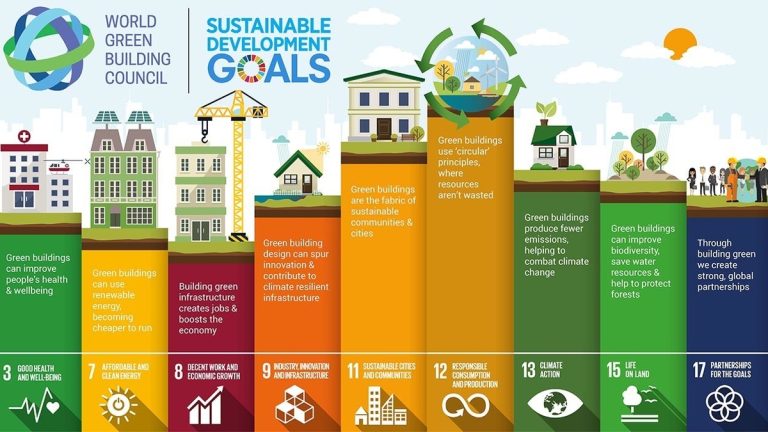As we move toward a more technologically advanced future, the real estate industry is no exception. The sector is undergoing a transformative shift, with sustainability, innovation and technology emerging as critical drivers of change. From the concept of smart cities to the integration of artificial intelligence (AI), the future of real estate development is being redefined.
Embracing sustainable development
Sustainability is no longer just a buzzword; It is a necessity that is leading to major changes in traditional real estate practices. The industry is shifting towards environmentally friendly development, prioritizing energy-efficient buildings, using renewable energy sources, and integrating smart building technology. This change is not only about reducing environmental impact, but also about enhancing human health and resilience. Consumer preferences increasingly favor sustainable real estate, resulting in significant cost savings and safe investments. While the path to a sustainable real estate future presents challenges, it promises long-term benefits for the environment, communities and investors.
The role of artificial intelligence in sustainable development
Technological innovations are at the heart of sustainable real estate development. AI, in particular, has proven to be a game-changing ally in the pursuit of sustainability. From reducing energy use in commercial buildings in Singapore to making older buildings greener in Europe, AI-powered systems are reshaping the real estate landscape. Although applying AI in sustainable development poses challenges, its ability to work alongside other technologies such as the Internet of Things and green innovations cannot be underestimated. The transformative impact of AI is paving the way toward a more sustainable and resilient world.
The emergence of smart cities and smart homes
The integration of technology into urban planning leads to the creation of smart cities, a tangible reality that shapes the future of urban life. These cities leverage technology to enhance efficiency, connectivity, and quality of life for their residents. Likewise, adoption of advanced smart home technologies is on the rise, offering improved convenience, energy efficiency and security. Data analytics are also used to enhance community services, and contribute to making cities smarter and more sustainable.
Proptech: Merging real estate and technology
Proptech, short for real estate technology, is a fast-growing field that combines real estate with technology. It includes innovative tools that are transforming real estate transactions, management and marketing, enhancing efficiency and user experience across the industry. With more than 9,000 proptech companies worldwide, the industry offers a wide range of solutions. Proptech promotes efficiency, transparency and sustainability throughout the real estate ecosystem. Innovations in this area include AI-driven automation, IoT integration, fintech solutions, and various sustainability initiatives.
A call to industry leaders
As the real estate industry evolves, industry leaders must support sustainable practices, integrate smart technologies into projects, and lead with a vision for the future. Events such as the Future Real Estate Forum in Riyadh emphasize the importance of innovations and sustainable solutions in the real estate sector. The future of this sector is bright, with strong growth expected and new opportunities in areas such as the Saudi retail sector.
In conclusion, the intersection of innovation, sustainability and technology in real estate development is not only reshaping the sector, but also having a profound impact on the environment and communities. With an emphasis on sustainable development and technology integration, the future of urban living promises to be more efficient, connected and improved.

